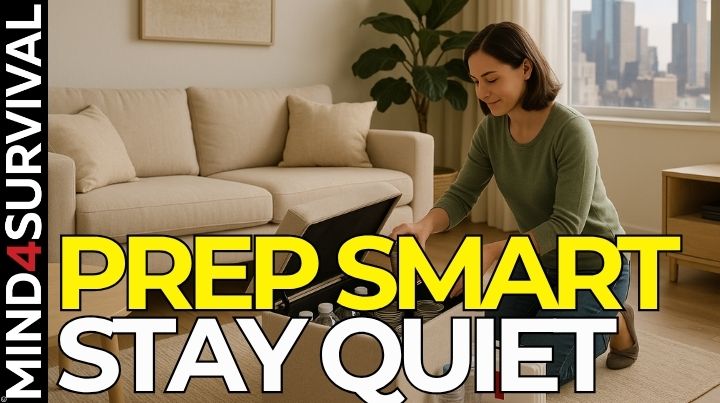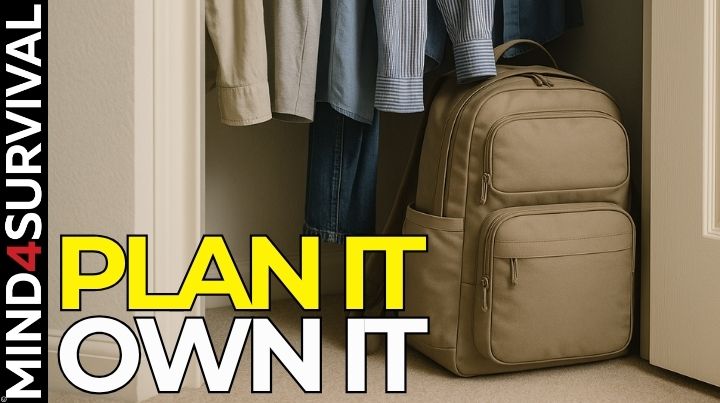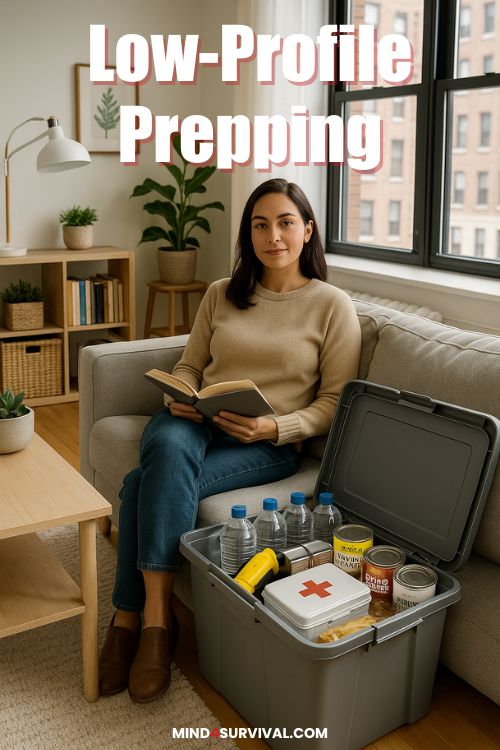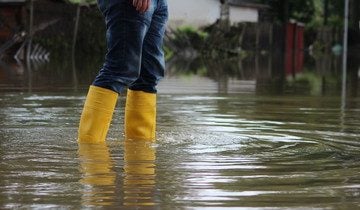Low-Profile Prepping: How to Prep Without Attracting Attention

More and more people, especially those in urban and suburban areas, have come to realize the importance of being ready for emergencies.
One concern that is common among urban preppers is how to prepare effectively without letting the entire neighborhood know you’re stocked and ready. That’s where a low-profile survival plan comes in.
If you live in an apartment complex, a cul-de-sac, or a tightly knit community, drawing attention to your preparedness efforts can make you a target when things go awry. The last thing you want during a crisis is to become a target. Let’s look at ways to prep smartly, quietly, and effectively, without attracting unwanted attention.
TL;DR: Low-profile prepping means staying ready without drawing attention. Learn how to stock supplies and protect your family quietly and effectively.
Quick Look at What You’ll Learn
Why Should You Keep a Low Profile?
Let’s face it—people can’t help but notice things. I certainly do. I can tell which neighbors recently bought a large screen TV, computer, or are revamping their furniture. I can see who is bringing in a large pallet of water bottles and getting supplies, just by glancing at their doorstep or open garage. How about that solar generator delivery box left on your porch?
It doesn’t take long for a nosy neighbor or casual acquaintance to start figuring you out. In a long-term emergency, food, water, and supplies become very valuable. If others know you’re stocked, you may face everything from awkward requests to aggressive demands.
A low-profile strategy helps:
- Avoid becoming a target for theft or forced charity.
- Maintain operational security (OPSEC) for your family.
- Reduce preconceived notions from those who don’t understand prepping.
- Stay calm and confident in your readiness without oversharing.
Key Strategies for Low-Profile Prepping
1. Keep Your Prepping to Yourself
It sounds simple, but the #1 rule of stealth prepping is: don’t talk about prepping. You don’t need to lie, but you also don’t need to advertise your plans.
- Avoid posting photos of your preps on social media.
- Don’t discuss emergency plans with people you barely know.
- If anyone asks about bulk purchases, downplay your efforts by saying you’re just taking advantage of good deals.
If you want to follow a checklist without broadcasting it, Ready.gov has a straightforward emergency supply list you can use as a private reference.
Keep your preparedness efforts personal.
2. Blend Your Buying Habits
Buying 100 cans of soup in one shopping trip will definitely raise eyebrows. Instead, blend your preps into regular purchases.
- Stock slowly and steadily. Add 1–2 extra cans, bottles of water, or hygiene items during each store run.
- Use multiple stores or online orders to avoid repeat patterns.
- Avoid prepper-specific branding when possible, especially on packaging or delivery boxes.
- Break down boxes before putting them in the trash or recycling. Flatten and hide anything that screams “emergency food” or “gear.”
- Quick tip: Try to use delivery lockers if possible or pick up in-store options for large orders if available.
3. Disguise Your Gear and Storage
If you’re storing supplies in a small home or apartment, it’s essential to be creative and discreet.
- Use hidden storage: under beds, behind books in bookshelves, or in plain-looking totes.
- Choose multi-use furniture like ottomans or coffee tables with storage space.
- Label bins and boxes using general descriptions such as “Christmas decorations” or “Crafting supplies.”
- Use opaque containers that hide the contents.
Bonus: Use blackout curtains or reflective film now—not just during an emergency. You may even save energy in the process.
4. Keep Your Prepping Sounds to a Minimum
Prepping can be noisy. Generators, can openers, vacuum sealers, or even your home defense practice can be heard through walls.
- Use sound-minimizing methods like rugs, foam panels, or closing interior doors when running gear.
- Opt for quiet. Choose gear such as generators that have a low sound output.
5. Keep Your Bug-Out Bag Discreet
A military-style backpack in camo screams, “This person is ready.” If you ever need to leave your home during an emergency, you don’t want to appear more prepared than everyone else.

- Choose a neutral-colored bag—gray, navy, or dark green.
- Avoid tactical or MOLLE-style designs if possible.
- Don’t overload your bag to the point that you are over-encumbered. It’ll slow you down.
- Keep it stored where it won’t be spotted—like inside a closet or under a bed.
- Practice moving with it casually, without drawing attention. If you’re leaving during a disaster, the goal is to blend in.
6. Conceal Outdoor Prepping
If you have a backyard, balcony, or small outdoor space, there are still low-key ways to prepare.
- Use vertical planters, trellises, or privacy screens for growing food.
- Stick to edible plants that look decorative (such as herbs, edible cacti).
- Use camouflage covers or sheds to hide gear like rain barrels, composters, or backup fuel.
- Avoid open display of solar panels, radios, or other gear that might suggest emergency readiness.
Even in an apartment, consider a folding solar panel that you can store and only deploy when necessary.
7. Just Act Normally
During an emergency, appearing too calm or comfortable can make others suspicious.
- Keep your windows covered and use blackout curtains to prevent light from leaking when power is out for the rest of the neighborhood.
- Cook indoors discreetly—use low-smoke options like solar ovens, rocket stoves, or thermal cookers.
- Don’t use flashy gear or parade around with radios, weapons, or headlamps.
- Keep noise to a minimum—no loud generators, music, or celebration during a crisis.
- Blend in. Be helpful when appropriate, but don’t advertise your preparedness.
Additional Tips for Discreet Urban Prepping
- Practice grey man tactics: Dress, act, and carry yourself like everyone else. Don’t attract attention.
- Keep cash hidden and carry only small bills during an emergency. Don’t talk about your gold or silver coin stash.
- First in, first out—use older items first and replace them during routine shopping.
- Secure your home without overdoing it. Reinforce doors and windows internally so they look normal but are harder to break.
- Be cautious with deliveries. Use discreet packaging, and avoid stacking visible boxes on your porch.
What to Do If Someone Finds Out
Despite your best efforts, someone might notice. A curious neighbor, delivery person, or even a family member may ask questions.
- Stay vague. “Yeah, I like to be a little prepared, just in case.”
- Downplay your supplies. “We try to have a couple of weeks’ worth of stuff on hand, especially after seeing all the shortages.”
- Don’t confirm or deny the extent of your prepping. Shift the conversation or keep it light.
The Bottom Line on Low-Profile Survival
Prepping doesn’t have to mean announcing to the world that you’re ready for disaster. In fact, the most effective preppers often fly completely under the radar.
By taking a low-profile approach, you’ll gain peace of mind while protecting yourself and your loved ones from unnecessary risks, both before and after a crisis hits.
Quietly build your stockpile. Train without fanfare. Prepare your mind, your home, and your exit strategy. And when the time comes, you won’t just survive—you’ll thrive while others scramble.
Low-Profile Prepping: Frequently Asked Questions
Drawing attention to your preparedness can make you a target in a crisis. Keeping a low profile helps you avoid theft, forced charity, and unnecessary confrontations
Use hidden or dual-purpose storage like ottomans, closets, or labeled boxes. Avoid clear containers and break down delivery boxes to keep things discreet.
Drawing attention to your preparedness can make you a target in a crisis. Keeping a low profile helps you avoid theft, forced charity, and unnecessary confrontations.
- Review your home from a neighbor’s perspective—what stands out?
- Pick one item from your supply stash and find a better hiding spot for it.
- Practice blending in when running errands or talking with neighbors.
And if you haven’t already, grab a copy of my book, Mind4Survival. It’ll help you strengthen the mindset and awareness needed to thrive when others panic.








